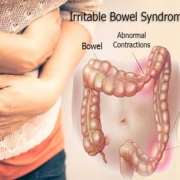A Comprehensive Look at Irritable Bowel Syndrome and its Associated Factors Considering the Rome IV Criteria: A Penalized Smoothly Clipped Absolute Deviation Regression Approach in the Pars Cohort Study
Authors
Abstract
BACKGROUND After the introduction of the Rome IV criteria for the diagnosis of irritable bowel syndrome (IBS), studies on the clinical significance of the new criteria in the settings of a large study has been scarce. Objective: Herein we used the infrastructures provided by one the largest cohort studies in Iran to evaluate the epidemiological features related to IBS. METHODS A total of 9264 participants, were enrolled in the initial registry. Diagnosis of IBS was done using the Rome IV criteria. Individuals with IBS were compared with a control group. Since the study included a large sample size of patients, we used the penalized smoothly clipped absolute deviation (SCAD) regression analysis to construct a model for the evaluation of factors associated with IBS. RESULTS Overall, data of 9163 participants entered the final analysis. In total, 1067 (11.6%) individuals were diagnosed with IBS, among which 57 (5.3%) were diarrhea dominant (IBS-D), 380 (35.6%) were constipation dominant (IBS-C), and 630 (59%) did not mention having any of the two (IBS-U). In the regression model, back pain/arthralgia (OR: 1.98, 95% CI: 1.65 – 2.40), insomnia (OR: 1.65, 95% CI: 1.40 – 1.93), depression (OR: 1.64, 95% CI: 1.38 – 1.95), female sex (OR: 1.58, 95% CI: 1.27 – 1.96), anxiety (OR: 1.43, 95% CI: 1.21 – 1.69), and being married (OR: 1.23, 95% CI: 1.03 – 1.48), were associated with higher rates of IBS. We found that IBS prevalence displays a peak at the age of 41 years for both men and women. CONCLUSION The present study provides a background for follow-up studies to be conducted in order to evaluate causality between IBS and some major diseases such as liver disease. We also found that opium use, although not statistically significant, in addition to sex, education, back/joint pain, depression, insomnia, anxiety, and marital status might be a contributing factor in IBS.

